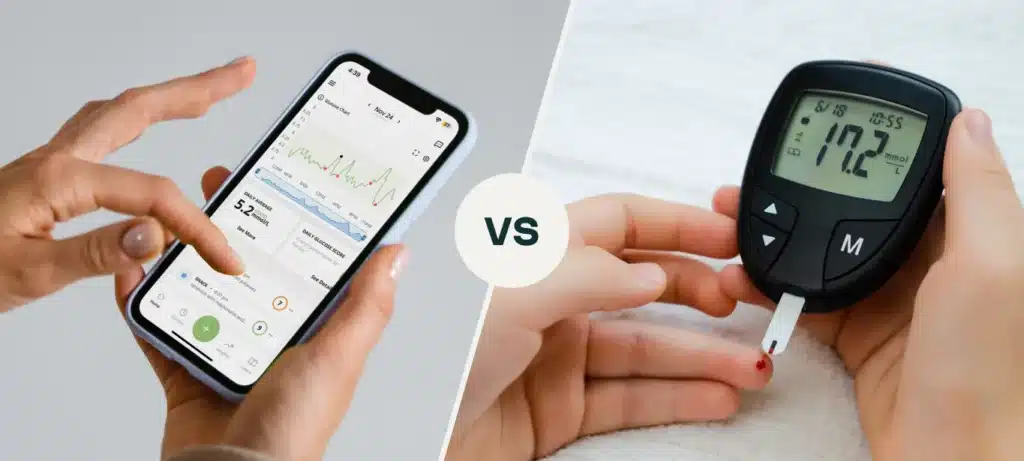As glucose monitors become increasingly popular for managing diabetes and tracking blood sugar levels, the importance of using FDA-approved devices cannot be overstated. The FDA recently issued a warning against the use of unauthorized CGM, highlighting the potential risks associated with unapproved devices. This blog explores the implications of the FDA’s warning and underscores the importance of selecting reliable and safe for diabetes management.
Understanding the Role of the FDA in Glucose Monitor Regulation
The Food and Drug Administration (FDA) plays a critical role in ensuring the safety and effectiveness of medical devices, including glucose monitors. The FDA’s approval process involves rigorous testing and evaluation to confirm that devices accurately measure blood sugar levels and are safe for use. This regulatory oversight is essential for maintaining high standards in healthcare and protecting consumers from potential harm.
Unauthorized CGMs are devices that have not undergone the FDA’s approval process. These unapproved devices may be imported from other countries, sold online, or even manufactured without proper quality control measures. The use of such devices can pose significant risks to consumers, as they may provide inaccurate readings, lack safety features, or be of substandard quality.
The Dangers of Using Unauthorized Glucose Monitors
The FDA’s warning emphasizes several dangers associated with using unauthorized glucose monitors. Understanding these risks is crucial for anyone managing diabetes or interested in monitoring their blood sugar levels.
Inaccurate Readings and Mismanagement
The possibility of false readings from unapproved glucose meters is one of the main worries. Accurate blood sugar readings are essential for effective diabetes management, as they inform decisions about medication, diet, and lifestyle. An unauthorized glucose monitor that provides incorrect readings can lead to improper dosing of insulin or other medications, potentially resulting in dangerous highs or lows in blood sugar levels.
More Read About: I’m Not Diabetic – Should I Be Using a Glucose Monitor?
Lack of Safety Features
FDA-approved glucose monitors are designed with safety features that protect users from harm. These features may include alarms for hypo- or hyperglycemia, secure data storage, and proper labeling for safe use. Unauthorized CGM may lack these critical safety features, increasing the risk of adverse events. For instance, a device without proper alarms may fail to alert a user to dangerously low blood sugar levels, leading to severe consequences.
Quality and Reliability Concerns
Unauthorized glucose monitors may be manufactured without adherence to quality standards. This lack of quality control can result in devices that are unreliable, prone to malfunctions, or even harmful. The FDA’s approval process ensures that CGM meets stringent quality requirements, offering users peace of mind that they are using a reliable and safe device.
The Impact of Using Unauthorized Glucose Monitors on Diabetes Management
Effective diabetes management relies on accurate and reliable data. The use of an unauthorized glucose monitor can compromise this data, leading to potential mismanagement of the condition. For individuals with diabetes, this can mean ineffective treatment, increased risk of complications, and a general decline in quality of life. It’s essential to understand the potential consequences of using unapproved devices and to prioritize the use of FDA-approved CGM.
Risk of Incorrect Medical Decisions
Inaccurate readings from unauthorized glucose monitors can lead to incorrect medical decisions. For example, a patient may take more insulin than necessary if their monitor shows falsely high blood sugar levels. Conversely, underestimating blood sugar levels can result in insufficient treatment, causing prolonged hyperglycemia. These scenarios underscore the importance of using accurate CGM to guide treatment decisions.
Increased Anxiety and Uncertainty
The reliability of a glucose monitor can significantly impact a user’s confidence in managing their diabetes. An unauthorized glucose monitor that provides inconsistent readings can create anxiety and uncertainty, making it difficult for users to trust their data. This lack of confidence can hinder effective diabetes management and lead to increased stress.
The FDA’s Recommendations for Choosing a Glucose Monitor
The FDA’s warning serves as a reminder to consumers to prioritize safety and accuracy when choosing a glucose monitor. The agency provides several recommendations to help users select the right device for their needs.
Verify FDA Approval
Before purchasing a glucose monitor, consumers should verify that the device is FDA-approved. This information can typically be found on the device’s packaging, labeling, or the manufacturer’s website. FDA approval indicates that the device has undergone rigorous testing and meets safety and accuracy standards.
Consult Healthcare Providers
Individuals managing diabetes should consult their healthcare providers when selecting a glucose monitor. Healthcare providers can offer guidance on which devices are reliable and best suited for a patient’s specific needs. They can also provide training on how to use the device correctly and interpret its readings accurately.
Avoid Purchasing Devices from Unreliable Sources
Consumers should be cautious about purchasing CGM from unverified online sources, international sellers, or unauthorized retailers. These channels may offer unauthorized devices that have not been tested for safety or accuracy. Purchasing from reputable pharmacies, medical supply stores, or directly from manufacturers ensures that users receive legitimate, FDA-approved devices.
Conclusion: Prioritizing Safety and Accuracy in Glucose Monitoring
The FDA’s warning against using unauthorized glucose monitors underscores the importance of selecting FDA-approved devices for accurate and safe diabetes management. While unauthorized devices may appear convenient or affordable, they pose significant risks, including inaccurate readings, lack of safety features, and questionable quality. For effective diabetes management, it’s crucial to rely on approved devices that provide reliable data and safeguard health.
In conclusion, individuals managing diabetes or interested in monitoring their blood sugar levels should prioritize the use of FDA-approved CGM. By doing so, they can ensure accurate readings, make informed medical decisions, and maintain a higher quality of life. The FDA’s oversight and recommendations play a vital role in protecting consumers and promoting the safe use of medical devices.


